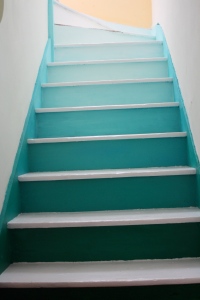The morning after the birth of our gorgeous new Prince George, God bess him and his family, the Yarn Bombers struck at Honeywood Museum…leaving a chandelier of teddy bears hanging from a birch tree!

 l
l
Author: SHEF
IMAGINE LIFE WITHOUT WATER!
Come and join in this watery themed collaborative Imagine Arts Festival! Artists from Sutton are working together to inspire a community through creativity and love, workshops will be taking place throughout Summer. The first is on 17th August, when you can come and help artists Simon Honey and Abel Kesteven create the Giant Octopus who will be making a special guest appearance at The Grand Opening Parade in Sutton High Street on 28th September, 2013, from 12-4pm.
FREE Summer fun! Make a Giant Octopus
Families with children welcome. Suitable for ages 8 and up. 11am – 5pm, just pop in! You don’t have to stay all day.
Saturday August 17th 11am – 5pm pop in you don’t have to stay all day.
@ the Riverside Centre, 113 Culvers Avenue. Carshalton. SM5 2FJ
Bring clean plastic bags to create a 6 metre wide Octopus for the Imagine Arts Festival.
Help us use fabric, recycled materials, printmaking, willow to create the Octopus.
To book contact simonhoneybjuice@hotmail.com
with Octopus as the subject matter
OR answerphone 020 8642 3843 &
leave your phone number
Cafe open till 1pm or bring a packed lunch
BENEFITS HELP

Turn2us helps people in financial need gain access to welfare benefits, charitable grants and other financial help – online, by phone and face to face through our partner organisations. A useful tool on the website is the Benefits Calculator.
HE: how it can work!

Amazingly encouraging report of how one Mum has been working with her children, copied and pasted from another site…
I have been so impressed reading about what XYZ’s and ABC’s
> children have done. It is amazing what can be achieved within the family,
> and in both cases I thought that perhaps all that time that is usually
> spent commuting to school, doing school admin, school busy work etc, has
> instead been channelled into a truly impressive education.
>
> That’s not really the case here, however. I feel like we are muddling
> through but it seems to work, and I feel school would waste so much time
> which they could spend better elsewhere. We are not ‘finished’ yet as DS1
> is only 15 (school yr 10, ie due to take GCSEs next year on conventional
> timetable) and there are 5 younger children too. However, he’s got a good
> bunch of qualifications under his belt already and I thought some people
> might like to hear how it has worked in this family so far – how working
> towards exams can work even if you are not very organised…
>
> I have never been organised enough to follow a timetable, and even when I
> have tried, it is like herding cats with the kids all suddenly developing
> urgent things they ‘neeeeeeeed’ to do (cue plaintive cries of “But we’re
> being autonomous / creative/ imaginative!” as they cynically attempt to
> manipulate me). Something always crops up to throw a spanner in the works
> – usually a baby/toddler! I would blame the chaos on having a large family
> but that doesn’t cut it as I have a friend with 12 kids who home-eds and
> she is always wonderfully organised! I think it is more that I am easily
> distracted, love learning new stuff, have no sense of time and get
> sidetracked into new things all the time. Anyway, we have never been
> either card-carrying autonomous, or structured – it’s been a case of
> structure for core subjects and looking out for educational opportunities
> and following our interests elsewhere. From somewhere around age 5-7
> depending, I have started them doing some simple maths and handwriting
> workbooks about 3 times a week, as well as learning to read. We also did
> some Bond exercises eg Non-Verbal Reasoning and Verbal Reasoning. Total
> sitting-down time for littlies probably an hour, with lots of
> interruptions, about 3x a week, plus ad hoc things like doing some science
> activities or drawing or a new craft, but that is just as and when it
> happens. Lots of sport. Lots of informal science, reading interesting
> articles in the newspaper, pointing out interesting things, encouraging
> hobbies and keeping lots of animals. Lots of reading fiction of all sorts.
> We subscribe to New Scientist and really find it helpful. Computer game
> time restricted to around an hour a day because I do worry about it
> crowding out other things. Big kids spend longer on it as they are on
> Skype with a group of friends. Oldest does computer programming and DS2
> does some as well as computer graphics. Everyone has French and Japanese
> lessons (a family project). Big kids do music lessons and go to drama
> group.
>
> DS1 wanted to start taking exams early because he was fed up with people in
> his sports classes saying “How will you get any GCSEs if you don’t go to
> school?”. He took modular maths when he was 12 (A*), then Physics at 13
> (A*), ECDL (IT qualification) and Digital Creator (another IT qualification
> which is 2 GCSEs worth), and Japanese speaking/listening (A*/A, half a
> GCSE). Aged 14 he took Chemistry (A*), Law (A) and Japanese
> reading/writing (this completed a full GCSE in Japanese, overall A grade).
> So aged 14 he had 5 GCSEs/IGCSEs all at A* or A, and 3 vocational
> equivalents. This year he’s taking Biology and Additional Maths and has
> retaken the law. So before he even reaches the year in which he would have
> taken GCSEs at school, he will have 10 GCSE equivalents, including 7
> GCSEs/IGCSEs, and then next year he will take at least English Lit &
> Language and maybe French and Geography. So he’ll finish with somewhere
> between 9 and 11 ‘real’ (I)GCSEs plus the vocationals on top, and that will
> be having usually worked for only 2-3 hours a day, steadily, throughout the
> secondary years. Actually for the first couple of years of secondary, when
> he was just doing Maths and then Physics, he spent only an hour or so a day
> studying these things, although other time doing his own things eg computer
> programming.
>
> We have mostly skipped any formal work aimed at KS3 (11-14years), except in
> maths. In the other subjects it seems to be all either repeating stuff you
> would have done at primary level, or beginning things you’ll have to do
> again in GCSE courses anyway. Of course, in schools this works well as
> part of the ‘spiral learning’ concept whereby you go over the same material
> several times in the school career and expect a bit more to stick each
> time, but it’s not necessarily the most efficient way for home education.
> For science at least, I just could not see the point of following a KS3
> course for our family. At GCSE level I think there is quite a difference
> between education and qualification, and while the kids are happy to jump
> through the hoops required to get the qualification, I don’t want the
> national curriculum to also dictate their *education* – that’s something
> wider.
>
> We had a token attempt at studying English with the oldest two about 3 or 4
> years ago but they didn’t really want to write much and I wasn’t that happy
> with the books we found. I tried Galore Park but they got fed up with
> those, and we tried something else but they argued with the textbook, so I
> just left it – they read widely, had good handwriting, so we just got on
> with other subjects and I asked them to write stories now and then. It was
> only 2 weeks before DS1’s law GCSE that we realised he’d never actually
> written an essay and – whoops – he would need to do that for the exam, or
> near enough, as the longer questions on paper 2 require answers which are
> around a page of A4. He managed well enough, but was not happy with the A
> grade he got, so this year he has spent a couple of weeks working on essay
> technique and has retaken the exam. We deliberately left English until
> last in the hope that greater maturity would help, and fortunately a lovely
> home-ed mum and tutor has set up an English group which DS1 goes to with
> his friends, so I don’t need to think about that. He enjoys it and it is a
> social occasion, and she is so full of enthusiasm that she is motivating
> the children.
>
> History is done in an informal and sometimes underhand way. I bought the
> Galore Park books and I thought they were great, but the oldest two did not
> like them. DS1 has now declined to study history on a formal basis on the
> grounds that he knows all he needs to know from reading the Horrible
> Histories series, and that the textbooks don’t tell him anything that these
> books don’t, it’s just less interesting (!!!)…… actually he does seem
> to remember just about everything from them, but hmm! History is old hat,
> apparently; I provide historical fiction, lots of podcasts while I have a
> captive audience in the car, and cross my fingers. We go to some English
> Heritage events and learn lots from those. We go to museums, usually with
> a target of just a few things to look at, and will have found out something
> about them beforehand. DS2 has expressed an interest in a History IGCSE in
> a couple of years so I suppose it will be a case of working through the
> book and building on background knowledge.
>
> How the oldest 2 study for the subjects they are aiming for exams in is –
> they take the set textbook for the subject and work through it, doing the
> exercises as they go. In maths, if the exercises seem easy then they do
> every other question. The ‘Review’ questions at the end of each chapter
> are saved for revision.
> The goal we have is to do 3 units of work a day – each unit being an
> exercise from a textbook or homework from French or Japanese. The older
> kids manage this themselves mostly, though if I see them at a loose end or
> starting to get niggly with each other, I will remind them to go and do
> either some studying or some housework. It’s amazing how interesting
> textbooks can be when the alternative is vacuuming the stairs.
>
> DS1 likes to mix maths with violin practise because apparently it helps;
> he’ll do maths for a while, then if something seems difficult, he will play
> violin for 10 minutes or so before going back to it. We call it doing a
> Sherlock Holmes.
> Oldest marks his own work from the mark scheme as he goes along. I have a
> look now and then to see if he’s on track and make myself feel useful. If
> he is unsure of anything he asks me and I will help him find another book
> or a good source online. If I find a good radio or TV programme or
> newspaper article on the topic then I show it to him, but DS1 prefers books
> to videos and presentations as he can go through at his own pace and skim
> stuff he already knows. So far, I have not needed to get involved; he has
> largely educated himself as far as the syllabus is concerned. That is sort
> of deliberate as I wanted the kids to be independent learners, and it is
> sort of necessary as if they were waiting for me to explain it to them,
> they would be waiting all day sometimes! I set up as many science
> practicals as seem a) practical (ha ha) and b) enjoyable. We did get a
> chemistry tutor to come round and do some practicals that I was scared of.
>
> When a date is set for the exam then we do more or less what Nola-Ann
> described, ie look at book sections to cover, divide by weeks remaining,
> saving 4 weeks for review/revision. If you are using a standard textbook
> (we have mostly used Edexcel ones) you will see that the exercises are
> designed to be one school lesson’s worth, so while the chapters may be
> different lengths, the sub-sections are usually a consistent size. When
> the book is finished, go back and do those ‘Review’ questions, then start
> on past papers, as many as possible. Save the most recent past paper for
> last. We do all past papers under exam conditions; I have a suspicion that
> DS1 finds it a convenient retreat from the noise of siblings. He and I
> both mark his mock exams, paying attention to what examiners are looking
> for & always reading the Examiner’s Reports for more guidance.
>
> I didn’t ever envision our home-ed life being quite as unstructured as it
> is; I had visions of them getting a wonderful classical education, me doing
> a better job than school could and probably in a tidy house too! The
> reality has been chaotic and sporadic, but yet it still seems to
> work. I thought I would be doing more actual teaching, but it turns out,
> mostly the older two don’t want me to do that. I am allowed to help with
> problem -solving or locating useful resources, but they want to do it
> themselves mostly. I am very lucky that they are motivated. It must be so
> much harder when you have someone who is not motivated, but you want to
> keep their options open.
Funding Claim Procedure for 14/16 HE in Colleges
New today
Click to access collegefundingemailsmay2013.pdf
via
http://edyourself.org/articles/WolfReport.php
“These criteria only apply to colleges enrolling 14-16 year olds who would otherwise have been full-time on a school roll; they do not apply with regard to enrolments of home educated students.
In order to access funding for home-educated students aged 14-16 years attending courses at a college (either on a full-time or part-time basis), the college will need to complete the Individualised Learner Record (ILR) for each such student, ticking the EFA funding box and using the code for 14-16 home educated for the funding claim.”
This was raised at the APPG meeting in March
http://edyourself.org/articles/allpartygrouphomeeducation.php#apgfe14-16
Please share freely, thanks
Fiona
TRIGGER WORDS in exam questions
From the HE-GCSE group:
How to spot ‘trigger words’ that tell you what the examiner hopes to see:
Relating the Answer to the Number of Marks Available
The basic rule is simple: one or two mark questions can generally be
answered quite briefly and the examiner will be looking for a specific word/phrase, eg. Act of Parliament etc. Questions which carry more marks require more depth/discussion/comment, depending on the trigger word used (see below).
Students who do follow this rule will inevitably score better than those who do not.
Inevitably some students do themselves no favours by ignoring this basic instruction.
Descriptive/discussion/explanation or commentary questions require more than two or three sentences for the five or more marks available.
By contrast, questions prefaced with trigger words: name, state or identify, will frequently carry only a limited number of marks with only an (accurate) minimum response required.
Trigger Words
Great care is exercised during the setting process to ensure that the question is prefaced by the appropriate trigger word – name; state; identify; describe; discuss; comment on etc. This care needs to be matched by the students when answering the question!”
FLEXI-SCHOOLING reinstated
I have received a letter from Michael Gove MP (Secretary of State) regarding Flexi-schooling. To quote:
“…we have reviewed our position….The reference in the Government’s revised advice on school attendance, which was categorical that school could not agree to a flexi-schooling arrangement, has been removed. Where parents have entered into flexi-schooling arrangements, schools may continue to offer those arrangements. Pupils should be marked absent from school during periods when they are receiving home education.”
Croydon and Carshalton
Carshalton College and Croydon College both take 14 – 16 year olds for some of their courses, most of which are designed to fill in gaps which are not covered in school, eg. building trades, mechanics. You can apply direct to Carshalton College but to access Croydon College you have to be referred through the LEA!!! NESCOT does not take 14-16s!
If you have a 16 year old who needs Maths and English GCSE…Croydon College have a one year evening course in both!
College UPDATE 14-16 yr olds
Carshalton College and Croydon College both take 14 – 16 year olds for some of their courses, most of which are designed to fill in gaps which are not covered in school, eg. building trades, mechanics.
You can apply direct to Carshalton College but to access Croydon College you have to be referred through the LEA!!!
NESCOT does not take 14-16s!
Carshalton College
Samia Tossio, of SHEF and www.samiart.co.uk/, has been in contact with Carshalton College and they have confirmed that they will accept applications from 14-16 year olds to attend courses!!! Just apply online: http://www.carshalton.ac.uk/
Samia had contacted them previously and been told that they would not be taking this age group, as they could not comply with the DfE requirement of having the highest standards according to Ofsted. Luckily the DfE realised that this was too prescriptive and have now approved funding for ALL colleges who wish to accomodate 14-16 year olds.

